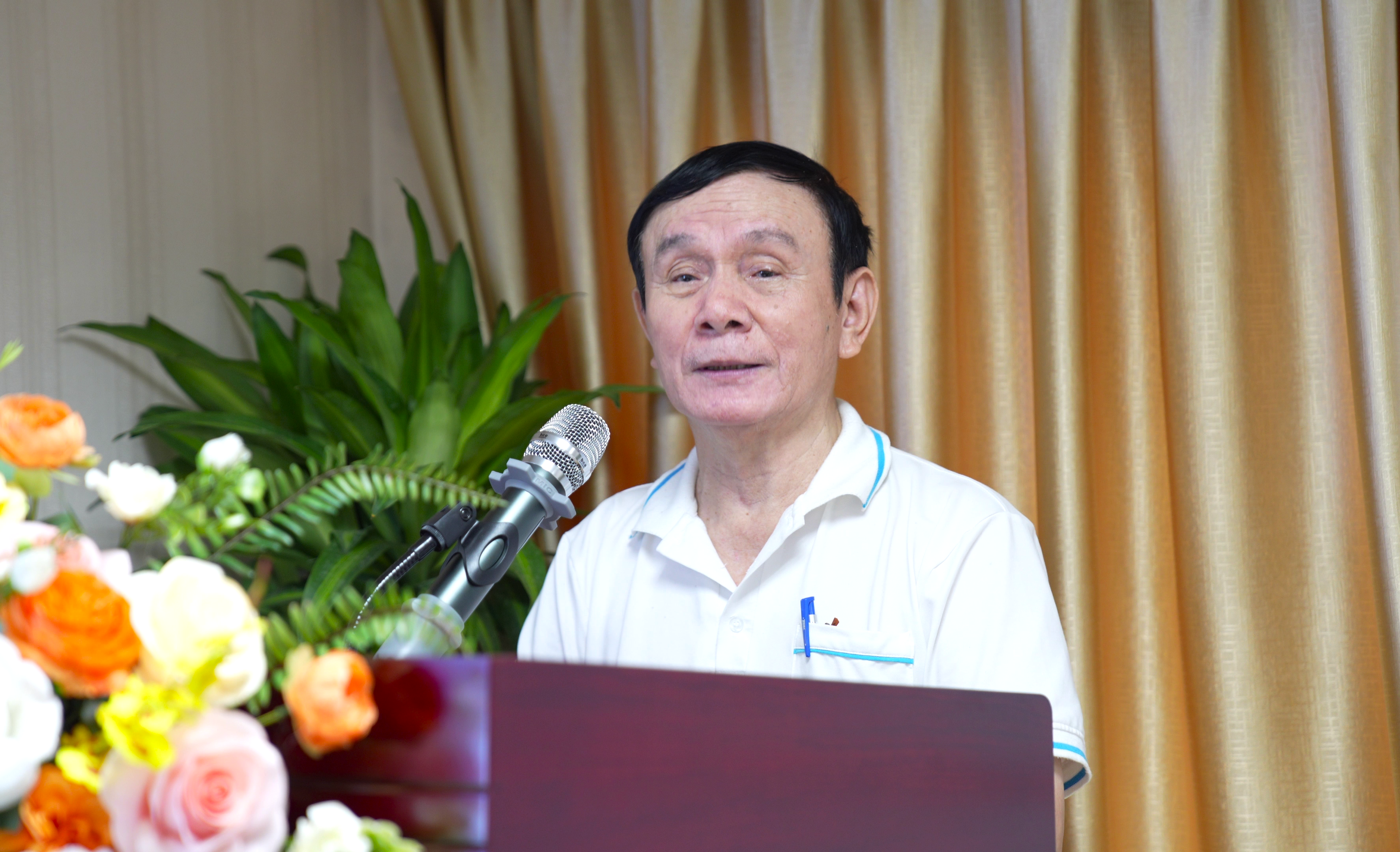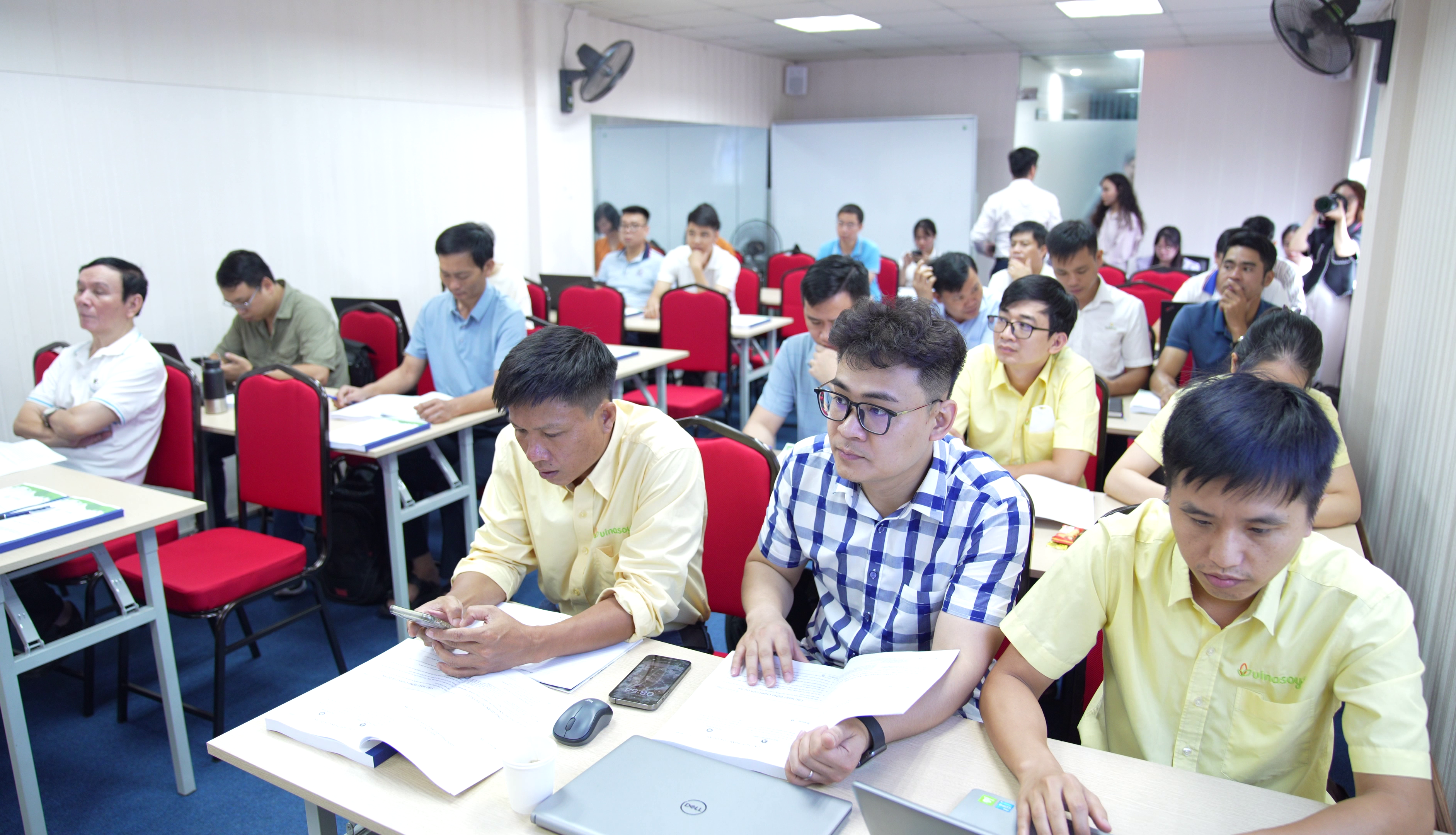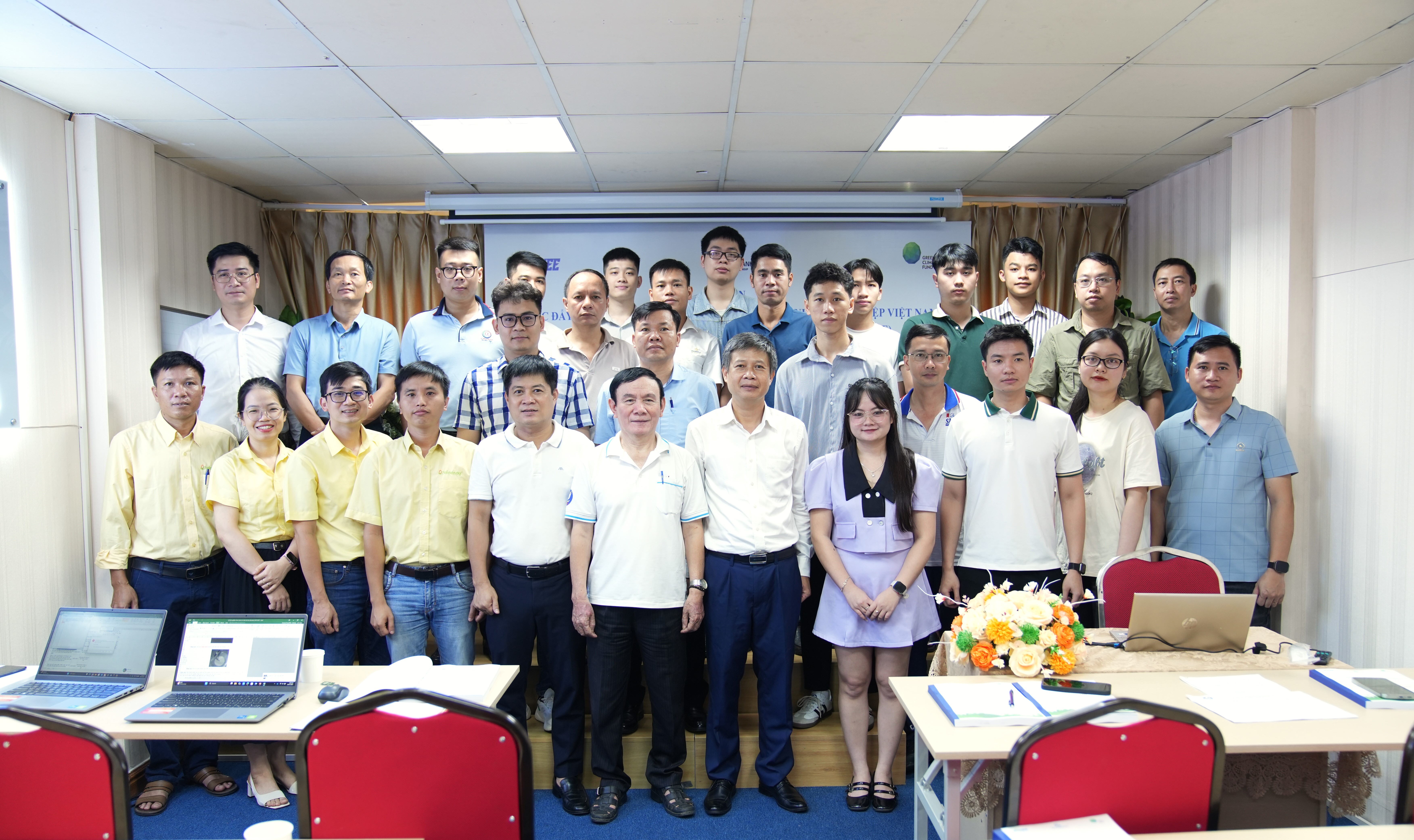On July 30, 2025, in Hanoi, the Ministry of Industry and Trade (MOIT), in collaboration with the World Bank and the Green Climate Fund (GCF), launched a training course to promote energy efficiency for industrial enterprises in the beverage sector. The training course takes place from July 30 to August 2, 2025.
The trend of sustainable industrial development
The training course is part of the “Vietnam Scaling up Energy Efficiency Project” (VSUEE). The training program is designed with a unique and highly applicable curriculum. The teaching faculty includes lecturers from technical universities, energy efficiency (EE) experts from the Ministry of Industry and Trade, as well as international and domestic EE experts under the project.
The purpose of the training program is to strengthen the capacity of industrial enterprise staff in identifying and developing EE projects, conducting energy audits, financial analysis for EE projects, implementing MRV (Measurement, Reporting, and Verification), marketing strategies, and business strategies for industrial manufacturing enterprises. It also equips leaders and managers of beverage enterprises with practical knowledge and skills.
Mr. Do Hong Hai, representative of the Vietnam Beer, Alcohol and Beverage Association (VBA), shared the importance of the training course.
During the training course, lecturers provided participants with the latest knowledge on regulations related to energy efficiency, the responsibilities of key energy users, legal regulations and policies on greenhouse gas emissions, gender issues in energy efficiency, and the current state of energy efficiency and conservation in Vietnam's industrial sector.
The industrial sector is currently the largest energy consumer in Vietnam. While energy demand is high, energy efficiency in the industrial sector remains low because many enterprises use outdated technologies, lack investment in modern equipment, and do not pay sufficient attention to energy efficiency solutions. This leads to energy waste and increased operating costs.
The industry also faces many challenges in energy management and usage, such as high initial investment costs for energy-saving technologies, inadequate support policies, and the absence of strong incentives for enterprises to implement EE solutions widely.
Mr. Mai Van Huyen, Director of the Green Development Center, introduced the VSUEE Project.
However, the trend of sustainable industrial development is gradually taking shape with positive signs, as enterprises are increasing investments in renewable energy, focusing on green industries, meeting strict environmental standards from international partners, and adopting digital technologies to monitor and optimize energy efficiency. This is not only a necessary direction to improve production efficiency but also a mandatory requirement for enhancing competitiveness and achieving sustainable industrial development in Vietnam in the context of global integration.
Energy efficiency solutions in the beverage sector
In addition to providing learners with an overview of sustainable development trends in Vietnam's industrial sector, the course also offered in-depth and practical approaches to beverage industry operations with specific analyses of energy consumption levels, equipment efficiency, and factors affecting energy losses in each production stage. The information provided helps enterprise managers better understand the current state of energy use at their facilities, thereby identifying bottlenecks, potential energy wastage, and opportunities for improvement to optimize costs and enhance production efficiency.
The beverage industry is one of the sectors with significant energy consumption. The main types of energy used in beverage production lines include electricity, steam, and diesel oil (DO). Electricity is used for almost all equipment in the production line, as well as for auxiliary equipment such as lighting systems, cooling systems, air conditioning, and air compressors. Steam is used for heating production processes, while diesel oil is often used to power equipment such as backup generators, forklifts, fire pumps, and some other internal transport vehicles in the factory.
Field surveys conducted by the VSUEE Project show that the specific energy consumption at some beverage enterprises remains high due to inefficient energy use, lack of systematic monitoring and management, outdated technology, and suboptimal operations. This not only increases production costs but also has negative impacts on the environment. Although the need for green development and energy efficiency is increasingly urgent, at many enterprises, improvement initiatives remain isolated and have not yet become part of a long-term development strategy.
The training course attracted a large number of leaders and managers from beverage manufacturing enterprises.
To improve energy efficiency and promote sustainable development in Vietnam's beverage industry, lecturers introduced several energy-saving solutions as follows:
Firstly, install variable frequency drives (VFDs) to adjust motor speed according to actual demand and apply VFDs in devices such as pumps, fans, and air compressors. This can save 20–30% of electricity consumption and reduce equipment maintenance costs.
Secondly, optimize cooling and air conditioning systems through regular maintenance, appropriate temperature adjustments, and replacing old equipment with high-efficiency systems, saving 15–20% in electricity costs and maintaining product quality.
Thirdly, recover waste heat from exhaust gases or wastewater during production for hot water generation or pre-heating, saving 10–25% energy and reducing fuel costs.
Fourthly, apply aseptic filling technology to reduce the need for heat and chemicals in production, saving up to 30% energy while improving product quality and shelf life.
Fifthly, install rooftop solar energy systems for lighting and hot water needs, reducing electricity costs by 20–30% and contributing to greenhouse gas emissions reduction.
The training course is a meaningful forum to help beverage enterprises share experiences and promote cooperation.
Sixthly, implement energy management systems according to ISO 50001 standards to monitor and optimize energy use, saving 5–20% of energy consumption and improving production efficiency.
Seventhly, Optimize steam and hot water systems by improving insulation and conducting regular checks to reduce heat loss, saving 10–15% energy and reducing operating costs.
Eighthly, improve boiler system efficiency by adjusting the air/fuel ratio, using clean fuels, and installing economizers, saving 3–10% energy and reducing fuel costs by up to 30%.
Finally, upgrade compressed air systems through installing VFDs, repairing leaks, recovering heat, and adjusting air flow, saving 15–35% electricity and recovering 50–90% of waste heat.
Throughout the training course, in addition to updating professional knowledge, participants spent considerable time sharing practical experiences, discussing specific challenges at their facilities, and learning successful lessons from other enterprises in the industry. Through this, participants not only accessed advanced energy-saving technologies and solutions effectively implemented in Vietnam and worldwide but also had the opportunity to broaden their strategic vision in energy management.
The results of the training course will help enterprises reduce production costs, improve operational efficiency, and contribute to achieving sustainable development goals, meeting increasingly strict requirements on environmental protection, emission reduction, and green transition in the beverage industry. This is a necessary step for enterprises to enhance competitiveness and adapt to market trends in the context of the global energy transition.
The Vietnam Scaling up Energy Efficiency Project (VSUEE) is funded by the Green Climate Fund (GCF) through the World Bank with a total budget of USD 11.3 million. The Ministry of Industry and Trade, as the project owner, is responsible for the overall implementation results. The project aims to promote energy efficiency in Vietnam's industrial sector, contributing to achieving national energy-saving targets, ensuring energy security, and implementing greenhouse gas emissions reduction tasks and climate change response goals. |
DUC DO











